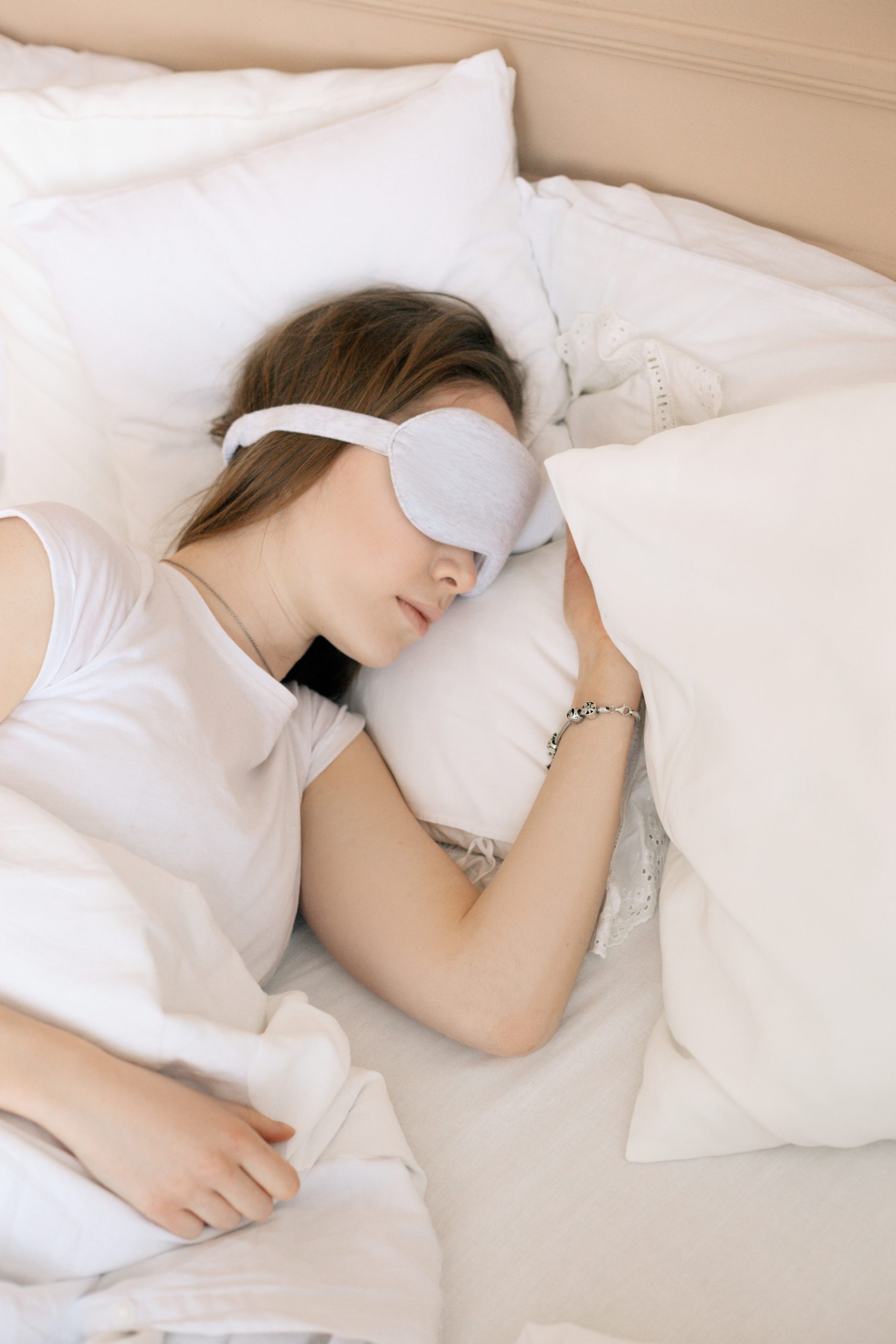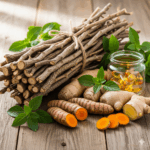Introduction:
If you’ve ever experienced insomnia, you know how frustrating it can be. Not being able to fall asleep at night affects your mood and productivity during the day, which can lead to a vicious cycle.
But don’t worry—there are a variety of treatments that may help. Let’s take a look at some conventional and complimentary remedies for insomnia as well as natural treatments that may be effective in helping you get back on track and achieve a good night’s sleep.
Conventional Treatments for Insomnia: Antihistamines & Hypnotics
If you experience chronic insomnia, your doctor may recommend over-the-counter antihistamines or prescription hypnotics.
Antihistamines work by preventing histamine, a stimulating chemical in the brain, from working on its receptors, which has a sedating action so you can fall asleep faster. However, they typically have a long duration of action which means they can leave you feeling groggy and sluggish in the morning, and on top of that they also reduce sleep quality.
Hypnotics also work to relax your mind but do so by targeting GABA, the main inhibitory neurotransmitter responsible for calming the brain. They can also lead to daytime sleepiness depending on the drug used, though some can last a shorter time. A pro is that they typically increase sleep quality.
However they can be addictive and form dependence when used frequently so these medications should only be taken under the supervision of a doctor.
Complimentary Remedies for Insomnia: Milk & Melatonin
In addition to conventional treatments, there are several complimentary remedies that may help with insomnia symptoms such as warm milk.
Milk contains calcium which is one of natures natural sedatives with calming and relaxing effects. Milk also contains tryptophan, which is normally converted to serotonin but also melatonin at night. These things make warm milk an effective remedy for falling asleep quickly.
Melatonin is also available as a medication or supplement in various countries, and works to control your circadian rhythm. It is the body’s natural sleep hormone which signals and regulates the body’s sleep cycle.
Taking melatonin before bedtime helps reset this rhythm so you can achieve better quality sleep on a regular basis. It also works remarkably well at treating jet-lag for this reason.
However melatonin should not be taken on a permanent basis; always discuss taking this supplement with your doctor before starting.
Natural Treatments for Insomnia: Herbs & Supplements
There are a number of natural treatments available to help alleviate insomnia symptoms such as herbs like lavender oil and valerian root which have calming properties similar to prescription hypnotics but less powerful and typically less habit forming.
Valerian is popular in Western Herbal Medicine with some studies showing good benefits on time taken to fall asleep, duration, and sleep quality, while others not. [1]
Additionally higher doses can commonly lead to daytime sleepiness the next day. Some formulations specifically specify ‘valerian free’ for this reason.
Lavender oil capsules compare well to the benzodiazepine drug lorazepam relating to a reduction in anxiety and better sleep quality with reduced awakening during the night so it may be a good option where the mind is racing before sleep. [2]
Chamomile although very popular is much weaker than the above herbs with an extract showing only modest improvements in sleep quality and time taken to fall asleep, and the tea showing some improvements for 2 weeks with efficacy dropping later. [3]
Cannabidiol (CBD) Oil is fast becoming a staple in calmatives around the world as this component of Cannabis is now legalised in most Western countries. It contains no ingredients that confer a high, having an effect via multiple mechanisms including a specific calming serotonin receptor (5-HT1A), and GABA among several others. It has anti-anxiety, antidepressant, and tranquillising properties and has been known to help many people suffering from anxiety-induced insomnia due to its calming effect on the nervous system. [4]
Additionally it may be an especially good option if your insomnia is being exacerbated by pain, as CBD may also soothe this symptom. [5]
Calming Amino Acids
L-Glutamine works with the help of vitamin B6 to synthesise GABA, thus it reduces stress, improves sleep onset, duration and quality. It is a better alternative than using GABA itself as that cannot pass the blood-brain-barrier efficiently.
L-Glycine is a natural amino acid that acts as a sedating neurotransmitter and is found in proteins in small amounts, and gelatine in more substantial amounts. It can be taken on its own as a supplement, in the form of gelatine or in bone broth. It is a very safe hypnotic that increases sleep quality, meaning you will feel less fatigued the next day. It can be used from as little as 500mg for a subtle calming effect, but 3g before bed is the recommended dose for insomnia.
L-Taurine has both effects on GABA and Glycine receptors and as an inhibitory neurotransmitter in its own right. It can be used on its own or included in a stack. It is most commonly found in energy drinks to encourage a less anxious or smoother caffeine effect or naturally in foods such as scallops, tuna, chicken and turkey among others, contributing to their sedating effects when eaten in large amounts.
L-Tryptophan and especially 5-HTP are not recommended. For insomnia warm milk is recommended for your tryptophan. Most people get enough tryptophan in their diet. Check out these foods highest in tryptophan. Also check out my future article on All You Need to Know About Serotonin.
Magnesium acts on the benzodiazepine receptors (GABA-A) [6] but there are no studies showing dependency or withdrawal syndromes from magnesium supplementation. Furthermore, magnesium interacts with the serotonin system, promoting calmness. [7]
Magnesium especially in the Glycinate and Taurate forms (bound to the same amino acids as above – Glycine and Taurine) may be especially effective for a compounded effect on anxiety and sleep.
Conclusion:
Lifestyle changes should also play an important role when it comes to treating insomnia—things like cutting out blue light at night (especially from screens), getting enough exercise during the day, setting up a regular sleep schedule, going to bed earlier rather than later, sleeping in total darkness (or using blackout curtains), etc., all play an important role in helping reset our circadian rhythms so we can get back on track with healthy sleeping habits.
With the right choice of conventional treatments or complimentary remedies like warm milk and melatonin plus natural treatments like herbs and supplements along with making lifestyle changes like those mentioned above—you should be able to find something that works for you! Good luck!





